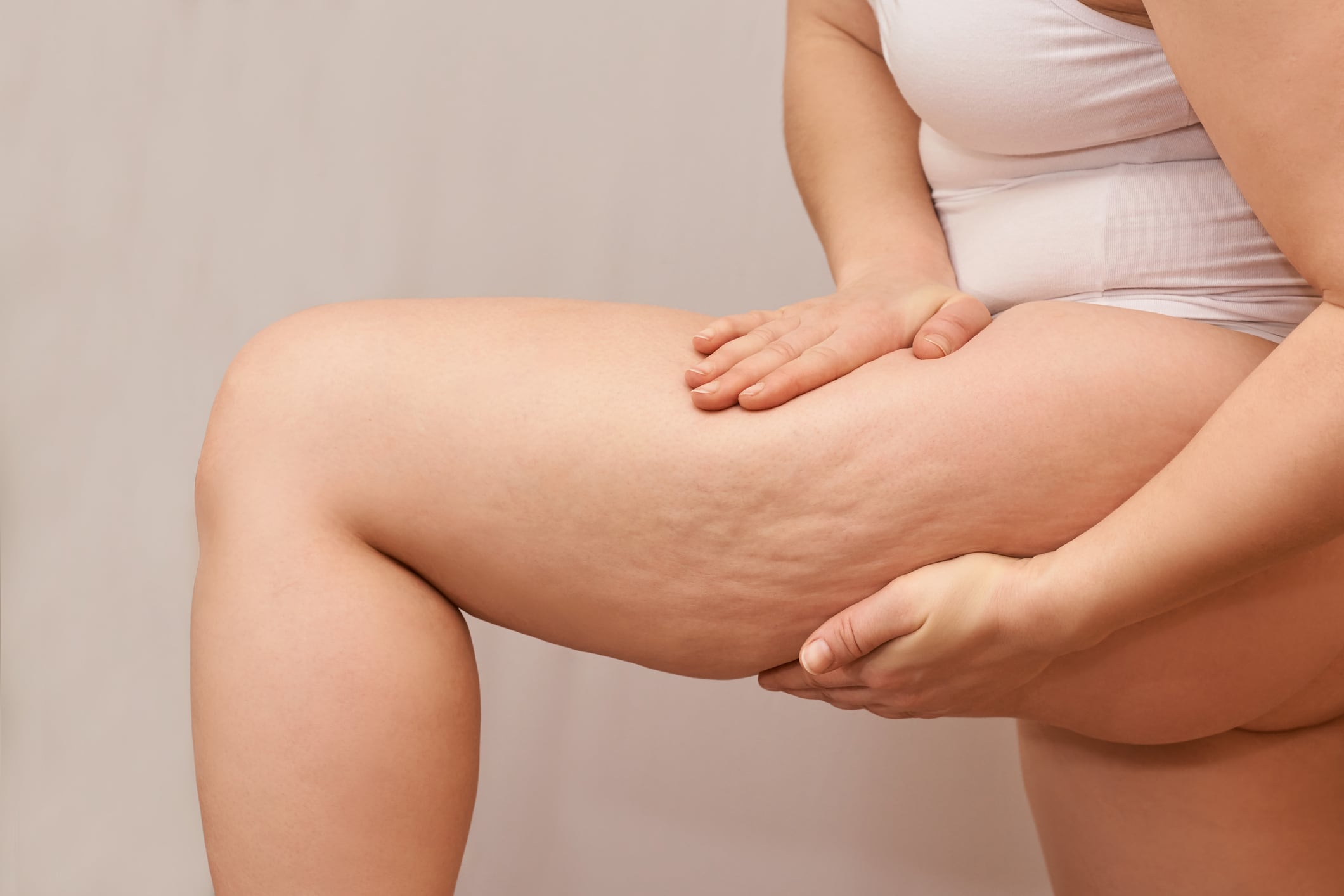Published in the journal Phytomedicines Plus, findings showed significant improvements to the clinical cellulite score after two and three months by 12.2% and 13.6%, respectively. The study also reported a reduction in upper thigh circumference and skin roughness.
The study used a French maritime pine bark extract commercially available as Pycnogenol and supplied by Swiss firm Horphag Research, which funded the study.
Study details
In what the researchers described as a first-of-its-kind clinical trial, a total of 60 Han Chinese women between the ages of 25 and 45 were randomly assigned to consume a placebo or the French maritime pine bark extract for 12 weeks.
Participants in the intervention group consumed one 50 mg capsule each morning and two 50 mg capsules each evening, for a total daily dose of 150 mg. This daily dose of 150 mg was selected based on previous research showing its effectiveness in addressing edema in chronic venous insufficiency and skin resting flux in menopausal women.
During the study, participants were instructed to refrain from using topical products that might interfere with cellulite treatment.
The researchers used the Hexsel Cellulite Severity (HCSS), a grading system that assesses the five important clinical and morphological aspects of cellulite, to assess changes in cellulite severity.
They include the number of evidently depressed lesions, depth of depressions, morphological appearance of skin surface alterations, grade of flaccidity or sagging skin and grade of cellulite.
Other parameters, including body mass index (BMI), thigh circumference and skin physiological status were also measured.
Findings showed a significant improvement in HCSS scores (down 12.2%) in the intervention group as early as eight weeks of supplementation.
By the end of the study, the score in the intervention group decreased significantly from the baseline of 7.1 ± 0.2 to 6.1 ± 0.2 (down 13.6%).
While not statistically significant compared to baseline levels, there was a 9% drop observed in the placebo group—down to 6.2 ± 0.2 from 6.8 ± 0.2.
Cellulite reduction associated with a smaller upper thigh
The reduction in cellulite in the intervention group was also accompanied by a decrease in upper thigh circumference.
By the end of the 12-week study, upper thigh circumference had decreased significantly from the baseline by 2.07 cm ± 0.4. The improvement was also statistically significant when compared to the placebo group, which only saw a reduction of 0.9 cm ± 0.3.
The reduction in upper thigh circumference using French maritime pine bark extract was also greater than some FDA-approved cellulite reduction treatments, the researchers said, citing existing research.
VelaSmooth, for example, combines infrared light, radiofrequency energy and tissue mobilization, with a reported reduction in upper thigh circumference of 0.53 cm.
SmoothShapes, a low-level, dual-wavelength laser and massage device, on the other hand, reportedly led to a reduction of 0.82 cm in upper thigh circumference.
Erchonia GLS, a low-level laser therapy employing green diodes, was found to produce results in the same range as French maritime pine bark extract, with a reduction of approximately 2.36 cm.
Horphag Research believes that findings of this clinical trial would open doors for further investigation into Pycnogenol’s role in supporting tissues structure and microcirculation.
Future research may also consider broader populations or complementary assessment methods.
Reduced skin roughness, improved skin smoothness
French maritime pine bark extract also led to significant improvements in two other parameters—namely skin roughness and skin smoothness.
Both skin roughness and smoothness were measured using VisioScan VC20, where smaller values reflect a smoother image.
In terms of skin roughness, the researchers reported significant and persistent improvements in the intervention group from the second month of the study. In contrast, the placebo group saw a significant but transient improvement.
“A transient significant improvement after two months was observed within the placebo group and a significant and persistent decrease of roughness occurred after two months and three months by 29% and 32% in the verum group,” the researchers wrote.
A similar trend was also seen in skin smoothness.
“In the placebo group, there was mainly no significant effect observed except between day 28 and day 56 from median 169 (151 to 192) to 155 (136 to 164) with a p-value of 0.012.
“In contrast, in the verum group, a significant improvement in skin smoothness was detected over time. The smoothness was found to be 149 (132 to 169) and 146 (130 to 165) after eight and 12 weeks, respectively. This corresponds to an improvement of 10% over time,” the researchers added.
“Taken together, this is the first randomized, double-blinded, placebo-controlled study successfully comparing the efficacy of a nutritional supplement containing FMPBE with anti-oxidative, anti-inflammatory and microcirculation-improving capacities to a placebo employing a validated clinical cellulite score.
“The data indicate a significant improvement in the clinical cellulite score after two and three months by 12.2% and 13.6% in the verum group, which was associated with clinical remediation shown by photographs and a significant decrease in the upper thighs’ circumference after three months.”
Source: Phytomedicine Plus. doi: 10.1016/j.phyplu.2025.100821. “A French maritime pine bark extract alleviates cellulite: A double-blinded, randomized, placebo-controlled clinical study“. Authors: Qi Liu et al.


